How Local SEO Can Skyrocket Your Small Business
Visibility in your local neighbourhood is important for most small bricks-and-mortar businesses. But what about ‘local’ visibility online?
The internet has revolutionised the world we live in by breaking down geographic boundaries and in effect giving all of us global reach. But businesses shouldn’t forget the importance of their local customer base, even online. And especially when it comes to search.
Nearly half (46%) of all Google searches seek out local information. More than three quarters (78%) of people use the internet to look up local businesses at least once a week, and 21% do so daily.
That means that an awful lot of search traffic has a local focus. Google and other search engines recognise this. Google is continually tweaking and improving its local search features, from expanding the ways you can find local information on mobile, to promoting nearby events and promotions in real time.
All of this opens up fantastic new opportunities for small businesses to engage with potential customers right on your doorstep, driving traffic to your web channels and footfall to your premises simultaneously. But to reap the rewards, you have to get to grips with a specific approach to search marketing – local SEO.
What is local SEO?
Search engine optimisation (SEO) is about making your website as visible in search results as possible. The goal is to hit the top spots on search engine results pages (SERPs) when someone searches for something relevant to your business.
How do you do this? Search engines use algorithms to identify, index and then rank the information on a web page. SEO boils down to ticking as many of the algorithms’ boxes as possible.
Local SEO plays this same game. But it focuses on the fact that search algorithms already prioritise ‘local’ data in a lot of searches. Think about what happens when you search for a restaurant or something to do for a day out. The search engine will always return results based on your location, whether it’s one you include in the search query, or just where you happen to be at that time. This is an important part of a search engine’s design to make results relevant.
Search engine algorithms can do this by scanning for a whole range of location-specific information on websites and web pages. Local SEO is about prioritising this kind of data so search algorithms pick it up easily.
Why is local SEO important?
Regardless of the incredible global reach the internet gives us, for many types of business, local trade remains essential. Restaurants, cafes, bars, shops, tradespeople, entertainment and leisure venues – you can’t readily sell your goods and services digitally to people on the other side of the world. The bulk of your custom comes from your local area.
Today, the internet plays a huge role even in local discovery. 98% of consumers use the internet to find information about local businesses and 87% specifically use Google. Local SEO is a vital tool in building recognition of your brand in your area. Strong search visibility feeds into other important aspects of building a strong local brand, like positive word-of-mouth on social media. People have to know you are there before they can recommend you.
When people search for a cafe or a boutique or personal trainer or a plumber in your area, you want to be top of those search rankings. People won’t scroll down through dozens of search results. Two-thirds of all web traffic from search engines goes to the top five results on SERPs. So good local SEO strategy gives you a competitive edge.
Google is also designed to make its search results as useful as possible to the person searching. You’ll probably have noticed that search results for business-related searches look different to, say, asking a general question. You don’t just get the name of a business, a short summary and a link. You get user reviews, summaries of products and services, a map showing where they are located.
All of this is information intended to help people make decisions. By putting this information about your business in front of prospective customers, local SEO therefore helps to drive conversions.

How to thrive with local SEO
So on to the all-important question. How do you leverage the power of local SEO so it has a tangible impact on brand visibility, sales and growth?
When indexing according to ‘local’ criteria, search engine algorithms look for data in three broad categories – proximity to the search location, relevance to what the search is asking for, and prominence.
Proximity and relevance can be covered by sound general SEO practice, such as making sure your business details are up to date and consistent, and ensuring your keyword strategy is sound. Prominence is the special sauce that makes your website stand out from the crowd, and requires some specific approaches in a local context.
Optimising for proximity and relevance
In search marketing circles, the acronym NAP is used for the name, address and phone number of a business. These details are critical to local SEO. The aim is to make them as visible to search algorithms as possible, so they can grab your details easily for local search results.
It’s standard practice to include NAP data in the headers and footers of every web page, as well as have a dedicated contact page on the site. This is the core of making sure that every page on your site is optimised for proximity. It’s what will help get your pages listed when people search for something ‘near me’, for example.
In local SEO terms, proximity and relevance are closely related. Your location goes a long way to determining whether you are relevant to a local search. But it also means there are other ways beyond the basics of NAP data that you can use to make web pages as relevant as possible.
Search engines have a whole box full of tools for judging what is the most relevant content for a search query. But the most important is that old mainstay of SEO. Keywords.
Local searches often include location-specific terms. A town. A neighbourhood. A street name or local landmark. These are in effect ‘local keywords’. And you can use them to boost the local relevance of your web pages as you would any other keywords.
For example, when posting photographs of your premises, events you have been involved with or examples of work you have done, include the location in the caption or alt tags. Search algorithms don’t know where pictures were taken unless you spell it out.
Regular blog posts and other ‘fresh’ content get prioritised by search engines. You can make this work for local SEO by focusing on ‘local’ content, which gives you an excuse to drop your location in the URL, headers and meta tags of the page – the parts that the algorithms focus on.
Optimising for prominence
SEO is a cut-throat business. Search engines give more prominence to websites that already have high traffic and great reviews. If you’re just starting out, it sounds like a rigged system. But from the search engine’s perspective, it’s all about giving their users quality results from authentic, well-respected businesses.
If you want to get ahead in SEO, you must play the prominence game. And it’s not as bad as it seems. Because ultimately, it boils down to solid online brand-building.
One way to establish yourself as a ‘prominent’ website in the eyes of search algorithms is to nurture lots of inbound links (or ‘backlinks’) to your site. Search engines love backlinks because they demonstrate you’re a real, active, functioning site.
In a local context, a great place to start is to get your business out there on as many local listings as possible. They offer an easy win on several levels. As well as creating those all-important backlinks to your site, creating extra ways for people to find your business online will do no harm to your traffic. Listings are also another place to get your NAP data online, too (just keep them up to date and consistent!)
Another way to create backlinks organically is to get involved in the community. By supporting charities and other local groups, hosting or sponsoring events etc, you create reasons for other people to talk about your business online, on their own websites and in the local media.
And not forgetting social media. Being active on social media, especially in any locally-focused groups relevant to your business, is another way to create backlinks and drive traffic to your site. But social media is also another invaluable source of something else that is critical to successful local SEO. User reviews.
Search engines are increasingly paying attention to the size of a business’s social following, and to the feedback customers leave. But even better are customer reviews that you can curate for your own site, or for review forums like Trustpilot. Or, perhaps most important of all for local SEO, Google My Business.
Google My Business is Google’s own business listings service. It involves getting your business details verified by Google, which immediately helps with local SEO. But Google My Business also includes tools like a review platform which gets tagged straight onto your SERPs listings, the option to post content to your profile as you would a social media page (and therefore keep your profile ‘fresh’), and to pull in content from social media to share.
Remember we mentioned how business results often look different to other types of SERPs listing on Google? That’s because they’re based on a Google My Business listing. And they dominate the top of the rankings.
Looking for an SEO agency in London? Our digital marketing team will help you develop the right strategy to profit from the UK’s biggest local market.



